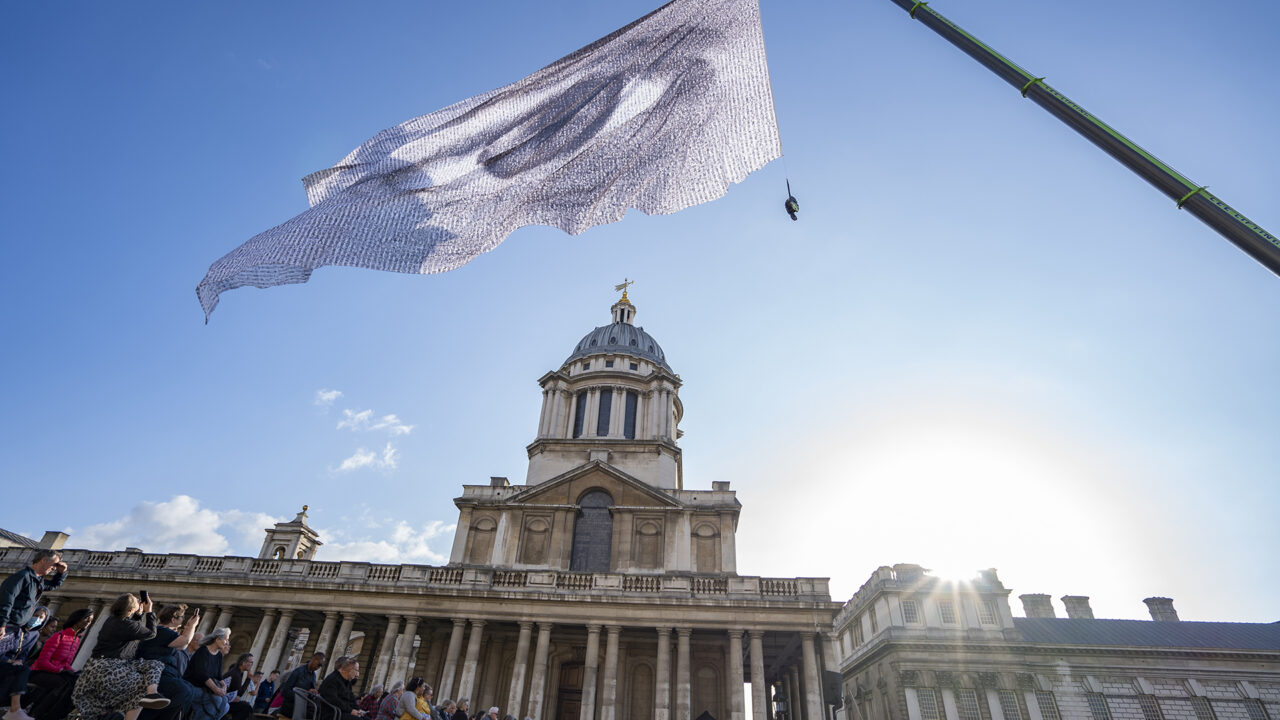- Posted on May 19th, 2023
FESTIVAL.ORG – Greening Outdoor Festivals

FESTIVAL.ORG is one of the leading producers of outdoor arts in the country and is perhaps best-known for its annual flagship, Greenwich+Docklands International Festival (GDIF), London’s largest & longest established festival of free outdoor theatre, performing arts & installation, that reaches audiences of 75k+ a year.
Using Data to Understand Our Impact
As an Arts Council National Portfolio Organisation (NPO), we have been reporting against Julie’s Bicycle Creative Climate (CC) Tools in line with funding requirements for several years. More recently, we have developed our processes for collecting environmental data across our different event strands, and CC Tools have been instrumental in guiding the type of data that we collect, report on and analyse in order to develop our sustainable practices.
Beyond Data – What Else Can We Do
For our events, we report back on specific footprints that spans energy/power usage, water usage and waste management. Artist liaison staff also record all artist travel, accommodation and freight transportation data; we have made the capture of this data a contractual requirement in the booking of all the creative artists and companies we work with. We also use our audience survey to estimate audience travel and we are logging business travel year-round. Each spring we upload this data into CC Tools.
We are also regularly revisiting our environmental policy and action plan to capture what we have done well and also what more that we could be doing. We use this self-analysis to adapt our forward planning in the wider context of scientific targets and the plan for net zero by 2050. We remain mindful of greenwashing i.e. not overstating our actions, and of the capacity of our small organisation. We are an organisation with just 3 full-time and 4-part-time year-round core staff focussed delivering everything that we want to achieve.
Challenges and Conclusions
To capitalise on the capacity we do have, we aim to set out to change our team mindset. This looks like building in sustainability to the earliest programming and production conversations, rather than seeing it an add on, for e.g. we are currently scoping a new touring programme with our Global Streets consortium partners and environmental impacts are profoundly shaping these emerging plans.
We are also using peer-to-peer learning to guide the development of our processes. We attend events and conferences to keep ourselves up to date with best practice, take part in initiatives such as Vision2025, collaborate with the Theatre Green Book, and work with international partners to explore more sustainable European outdoor touring. Our work with the Global Streets consortium is also offering a platform to develop conversations about smarter touring, data capture and reporting with 12 national partners.
It is not always easy to report on our impacts in a precise way. We have also found that there is relatively little guidance specific to the outdoor arts sector beyond greenfield or single location events. As an outdoor arts producing organisation working across different sites, this presents challenges. Some of the challenges we face in reporting and gathering accurate year-on-year data due to producing multi-site, concurrent events in public spaces and the difficultly in tracking our office usage and outputs as we work within a shared space within a larger building where data is unavailable to us.
Yet despite these challenges, we remain focussed on achieving consistent, reliable and well-rounded environmental data that we can use to begin to compare our carbon output year-on-year, to report in-depth and meaningful data, and to continue to improve our sustainable practices.
Check out Julie’s Bicycle’s Creative Climate Tools
This case study was written by FESTIVAL.ORG
Resource Materials
DownloadIMAGE CREDITS: We Are Watching by Dan Acher, from Festival.Org case study – photographer credit Alicia Clarke
